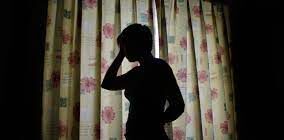By ‘Odidi Matai-Sigudla
Many Makhandans are still not aware that the town has its very own Safe House for victims of gender-based violence (GBV) and women who have secured protection orders against abusive people.
The Makhanda Safe House is a National Safe House project, funded by the Department of Social Development as a safe space for abused women and children to run to.
The house has been available to these women and children since 2009. Victims of Gender Based Violence (GBV), and victims who have filed a case or protection order often use the home as a temporary solace or place to escape to. Even though the Safe House does not usually take in children under the age of 20, these young people are considered if their guardian is present.
The Safe House doors are also open to women who have missed a bus to another town, or who may have been left behind by their bus – these women often go to the police station, and police then place them at the Safe House for the night.
The house also works with the police to accommodate victims who have opened a case and are in need of a place to stay. “We help victims of abuse through counseling. We cook (meals) for them and are there for them to talk,” said one of the social workers who has been working in the home for over ten years.
The Makhanda Safe House board, made up of different people from the community, realized that many people in Makhanda did not know about the existence of the house after community members mentioned this in an anti-GBV workshop recently.
“People are shy of coming out because they think that maybe they’re the only ones that have the problem of being abused. They end up staying with an abusive husband because they don’t know where to go. Some are not safe even with their relatives, so they end up staying with the abuser for a very long time,” said Anelisa Bentele, a Safe House board member and the co-director of Isikhalo Womxn’s Movement against GBV and Femicide (GBVF).
In the Makhanda house, victims can stay for three days, and if more time is needed, the victims’ counsellor will vouch for an extension. “We are actually in the process of changing this three-day limit. Because healing is not a three-day process,” explains Bentele.
Support groups for victims of abuse are held once a month for them to share their experiences of being in abusive relationships, and to receive psychological support from professional social workers.
Bentele said she felt deeply honoured to be a part of the Safe House Project, because it cemented her connection with the anti-GBV women’s movement. “I can tell the women in the GBV struggle that there is a home for abused women and children. So I am where I am making an impact,” Bentele said.


